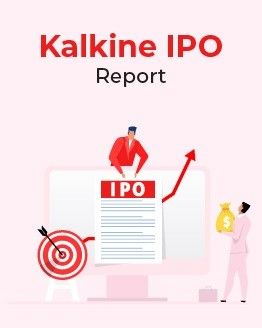0R15 8539.0 2.1534% 0R1E 8600.0 3.3654% 0M69 None None% 0R2V 190.25 -0.1312% 0QYR 1345.5 2.0871% 0QYP 424.0 0.5931% 0LCV 146.6464 -1.3147% 0RUK None None% 0RYA 1631.0 -0.6094% 0RIH 171.3 0.9131% 0RIH 174.9 2.1016% 0R1O 186.0 9820.0% 0R1O None None% 0QFP None None% 0M2Z 298.3 -0.6495% 0VSO None None% 0R1I None None% 0QZI 474.5 0.6363% 0QZ0 220.0 0.0% 0NZF None None%

The Offer

Company Overview
Jupiter Neurosciences, Inc. is a clinical-phase exploration and advancement pharmaceutical corporation positioned in Jupiter, Florida. In January 2016, the Company was set up in Delaware. The Company has created a distinctive resveratrol platform product that focuses on treating neuroinflammation. The business is focusing on Mucopolysaccharidoses Type 1, Friedreich's Ataxia, MELAS, and ALS at an earlier stage of research, among other rare illnesses, for which the pharmaceutical candidate, known as JOTROL, has numerous possible indications of usage. The company's early development effort in TBI/concussions is largely aimed toward Mild Cognitive Impairment/early Alzheimer's disease in the more widespread disease regions.
Key Highlights
Primary Offering: The Company is accepting applications for 2,500,000 Shares and expects the IPO price to be in the range of USD 5.00 - USD 7.00, therefore taking USD 6.00 per share as a mid-point to raise USD 15,000,000. After deducting projected underwriting discounts and commissions (7.00% of the gross proceeds of the offering) and the firm's expected offering expenses of USD 744,370, the business anticipates receiving net proceeds from this offering of around USD 13,205,630.
Use of proceeds:

Dividend policy: Since inception, the firm has neither declared nor distributed any cash dividends on its capital stock. JUNS does not currently plan to pay any cash dividends and currently aims to keep any potential future earnings.
Industry & Market Overview:
Product pipeline:
The table below provides the company’s current estimate of its timeline:

Financial Highlights (Expressed in USD):

Key Management Highlights

Risk Associated (High)
Investment in the IPO of “JUNS” is exposed to a variety of risks such as:
Conclusion
JUNS’ performance in the first half of FY22 shows increased expenses compared to the corresponding period of the previous financial year, resulting in increased operating losses and net losses for the company. Revenues, operating losses, and net losses all have worsened during the six months ended June 30, 2022, with currently no revenues from product sales in Q2FY22. Although it is anticipated that JUNS will have opportunities to expand using IPO funds, the success of the company's entire operation is dependent on the outcome of the current trial for its drug JOTROL.
Hence, given the financial performance of the company in the six months ended June 30, 2022, increasing losses, and associated risks “Jupiter Neurosciences Inc (JUNS)” IPO seems “Neutral" at the IPO price.
Disclaimer
References to ‘Kalkine’, ‘we’, ‘our’ and ‘us’ refer to Kalkine Limited.
This website is a service of Kalkine Limited. Kalkine Limited is a private limited company, incorporated in England and Wales with registration number 07903332. Kalkine Limited is authorised and regulated by the Financial Conduct Authority under reference number 579414.
The article has been prepared for informational purposes only and is not intended to be used as a complete source of information on any particular company. No advice or information, whether oral or written, obtained by you from Kalkine or through or from the service shall create any warranty not expressly stated. Kalkine does not intend to exclude any liability which it is not permitted to exclude under applicable law or regulation.
Kalkine does not offer financial advice based upon your personal financial situation or goals, and we shall NOT be held liable for any investment or trading losses you may incur by using the opinions expressed in our publications, market updates, news alerts and corporate profiles. Kalkine does not intend to exclude any liability which it is not permitted to exclude under applicable law or regulation. Kalkine’s non-personalised advice does not in any way endorse or recommend individuals, investment products or services for your personal financial situation. You should discuss your portfolios and the risk tolerance level appropriate for your personal financial situation, with a professional authorised financial planner and adviser. You should be aware that the value of any investment and the income from it can go down as well as up and you may not get back the amount invested.
Kalkine Media Limited, an affiliate of Kalkine Limited, may have received, or be entitled to receive, financial consideration in connection with providing information about certain entity(s) covered on its website.